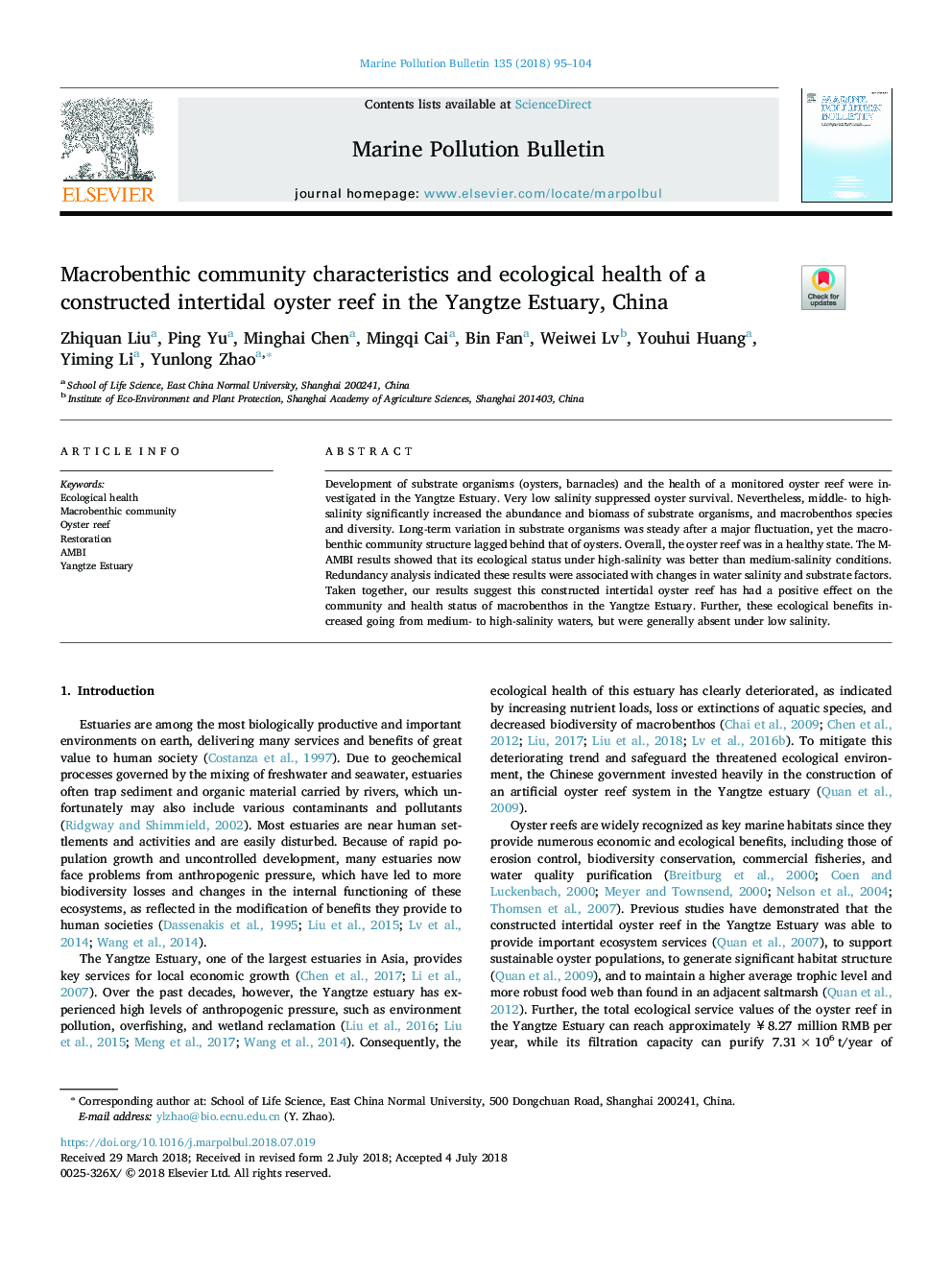| Article ID | Journal | Published Year | Pages | File Type |
|---|---|---|---|---|
| 8870620 | Marine Pollution Bulletin | 2018 | 10 Pages |
Abstract
Development of substrate organisms (oysters, barnacles) and the health of a monitored oyster reef were investigated in the Yangtze Estuary. Very low salinity suppressed oyster survival. Nevertheless, middle- to high-salinity significantly increased the abundance and biomass of substrate organisms, and macrobenthos species and diversity. Long-term variation in substrate organisms was steady after a major fluctuation, yet the macrobenthic community structure lagged behind that of oysters. Overall, the oyster reef was in a healthy state. The M-AMBI results showed that its ecological status under high-salinity was better than medium-salinity conditions. Redundancy analysis indicated these results were associated with changes in water salinity and substrate factors. Taken together, our results suggest this constructed intertidal oyster reef has had a positive effect on the community and health status of macrobenthos in the Yangtze Estuary. Further, these ecological benefits increased going from medium- to high-salinity waters, but were generally absent under low salinity.
Related Topics
Physical Sciences and Engineering
Earth and Planetary Sciences
Oceanography
Authors
Zhiquan Liu, Ping Yu, Minghai Chen, Mingqi Cai, Bin Fan, Weiwei Lv, Youhui Huang, Yiming Li, Yunlong Zhao,
